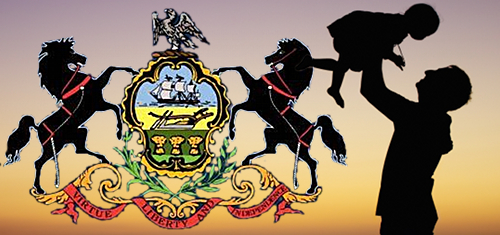 UPDATE: The original bill was amended to boost initial online license fees for casinos from $5m to $8m, while the casinos’ technology partners will see fees double to $2m. Operators will also have to pay an additional 2% tax on online revenue as a ‘local share assessment’ plus an additional $2m for problem gambling initiatives.
UPDATE: The original bill was amended to boost initial online license fees for casinos from $5m to $8m, while the casinos’ technology partners will see fees double to $2m. Operators will also have to pay an additional 2% tax on online revenue as a ‘local share assessment’ plus an additional $2m for problem gambling initiatives.
A Pennsylvania state government committee has approved an online gambling bill, the first tangible forward progress any state legislature has made on this front in years.
On Wednesday, the Pennsylvania House of Representatives Gaming Oversight Committee voted 18-8 in favor of committee chairman John Payne’s HB 649, which would authorize the state’s licensed casino operators to branch out into online poker and casino gambling.
The bill would also allow the addition of slot machines at racetrack operators’ OTB venues and at the state’s six international airports. An amendment that would have allowed video gaming terminals at restaurants and bars was struck from the bill before the vote.
HB 649’s next stop will be a vote by the full House membership. Assuming that vote is favorable, the state Senate would then need to give their stamp of approval before Gov. Tom Wolf would have the opportunity to sign the bill into law. Should the Senate amend the bill before voting, HB 649 would have to return to the House for a second vote before arriving at Wolf’s desk.
HB 649 may also take a less circuitous route to passage thanks to the state’s four-months-and-counting delay in passing a budget for fiscal 2016. Assuming consensus can be reached, HB 649 could be included among the budget’s myriad revenue generating schemes, after which both legislative bodies will need to cast their vote in favor of the package and Wolf will need to add his John Hancock.
Payne’s bill isn’t the state’s only online gambling legislative effort but it’s the preferred choice of the state’s pro-online casino operators. Payne’s bill calls for a 14% tax on online gambling revenue, a far more reasonable rate than the 54% proposed by the state Senate (mimicking the state’s industry-high 55% tax on land-based slots revenue). However, Payne’s tax rate is far from carved in stone and some negotiating is expected as HB 649 moves forward.
Also expect some pushback from anti-online opponents. While most of the state’s licensed casino operators are said to be either pro-online or neutral, the outlier happens to be Sands Bethlehem, whose boss Sheldon Adelson is bankrolling the Coalition to Stop Internet Gambling (CSIG), which only last month launched a fresh crusade to paint Payne as an ISIS member sent to wage biowarfare on ‘Murica with his toxic online gambling virus.
Regardless of its eventual fate, HB 649’s committee approval marks the first concrete step forward for any state-level online gambling legislation since New Jersey launched its intrastate online gambling market in late 2013. A California state Assembly committee approved an online poker shell bill earlier this year, but the bill was utterly devoid of specifics and the vote was simply a procedural effort aimed at keeping the state’s squabbling stakeholders at the negotiating table.
Poker Players Alliance exec director John Pappas credited his group’s membership with helping to influence Wednesday’s vote and urged further efforts to lobby Pennsylvania pols to push HB 649 over the top.






